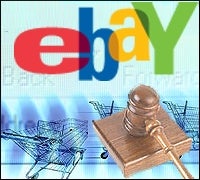 |
A high court in the United Kingdom has ruled that eBay cannot be held accountable for the sale of counterfeit L’Oreal perfumes and face creams.
The cosmetics maker had argued that knockoffs were rampant across eBay’s (NASDAQ: EBAY) marketplace, and sought to bar the sale of its products on the site to cut off the counterfeit trade.
Richard Ambrose, eBay’s head of trust and safety, heralded the decision as “a victory for consumers and the thousands of entrepreneurs who sell legitimate goods on eBay every day.”
L’Oreal said it was satisfied with the court’s ruling, noting that the judge said that eBay could do more to police its site for counterfeit goods.
The judge suggested 10 measures eBay could take, including filtering listings before they appear on the site and establish tougher penalties for people caught selling knockoff goods. The judge also advised capping the volume of merchandise that sellers can list in categories prone to counterfeit, such as fragrances and cosmetics.
Counterfeit experts say that people selling knockoffs on sites like eBay commonly sell them in batches. Instead of posting a listing for a single diamond bracelet from Tiffany’s, for instance, a counterfeiter’s site might have a dozen of them for sale.
eBay, no stranger to trademark infringement battles, maintains that for the volume of business it handles, the site remains remarkably free from counterfeits. The company said that of the 2.7 billion listings that appeared on eBay’s global site in 2008, 0.15 percent of them were flagged as potentially counterfeit.
Earlier this week, eBay launched an anti-counterfeiting campaign, appealing to members of the consumer electronics industry to join forces to help it fight fakes.
Any time questions about counterfeits arise, eBay points to its Verified Rights Owner Program (VeRO), an automated system it launched in 1998 to allow trademark and copyright owners to report knockoffs. In court battles, eBay generally asserts that its role is only to facilitate transactions between buyers and sellers, and that it cannot be held responsible for individual sellers hawking counterfeit goods.
But that hasn’t deterred rights owners from plowing ahead with cases and accusations against eBay. Typically, they claim that eBay’s anti-counterfeit mechanisms are too weak and that it shirks its responsibility for policing its site.
In July, a New York judge cleared eBay in a high-profile infringement case brought by Tiffany. That ruling came just a week after a French court held the online auctioneer responsible for $63.2 million in damages for its role in facilitating the sale of counterfeit Louis Vuitton goods.
Meantime, the software industry has a longstanding gripe with eBay for abetting piracy on its site. The Software and Information Industry Association has an eBay certification program to guard against pirated software, and has sued numerous sellers on eBay and even threatened to sue the site directly.
Today’s ruling in the U.K. court follows similar decisions in Belgium and France, resolving three of the five cases L’Oreal brought against eBay in 2007 in the favor of the e-commerce giant.
Last year a court in Germany ruled against eBay, and L’Oreal’s case in the United States is still pending.


